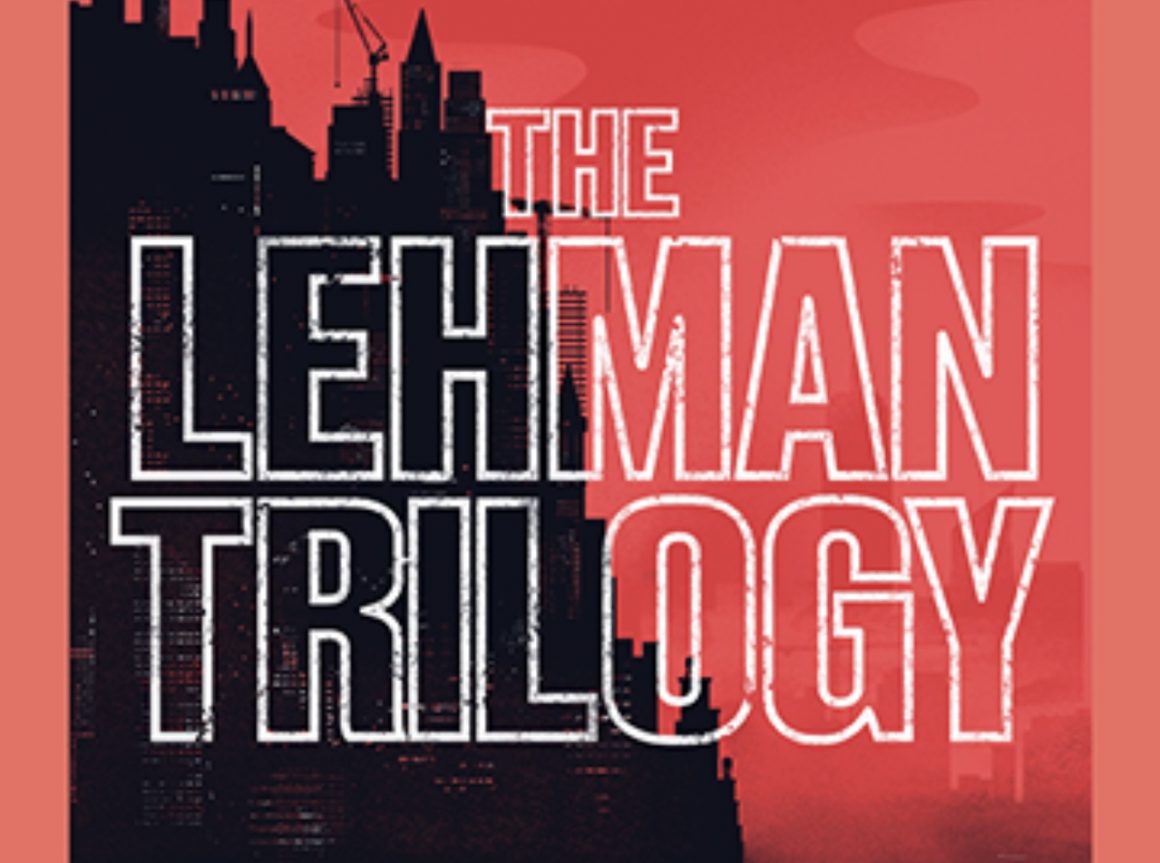
Theatre Calgary’s The Lehman Trilogy is a tale of endurance and certain collapse
By Hannah Caparino, November 2 2024—
The second show in Theatre Calgary’s 2024-25 season is Stefano Massini’s Tony-winning play, The Lehman Trilogy. The name Lehman can best be known through the historic rise and fall of the juggernaut financial company during September of 2008. The story of The Lehman Trilogy records the creation of the company from the mid 1800’s and explores the three brother’s involvement in the company and their heirs, all of which is retold in a dramatized and emotional fashion.
The first act of the play opens with Henry Lehman (Michael Rubenfeld) and his arrival to New York in 1844 and move to Alabama. His brothers Emmanuel Lehman (Alex Poch-Goldin) and Mayer Lehman (Diane Flack) follow in Henry’s footsteps and immigrate to the States with the hopes to make a new life for themselves. Beginning with opening a goods and fabric store, the Lehman Brothers are officially in business, with each brother having an instrumental role in its slow growth. Henry acts as the “Head”, Emmanuel as the “Arm” and Mayer as the “Potato”. Their roles reflect each of the brother’s personalities, with Henry being classified as the rational brother, Emmanuel as ambitious, and Mayer as underestimated but trustworthy. One of the cultural aspects that the play implements is the brothers Jewish heritage, including practices like Shiva, following the death of a family member.
Although the company had humble beginnings, the brothers began to redirect their focus on selling cotton that was grown in the state of Alabama. After Henry Lehman’s death and the events of the American Civil War, the company was then shepherded by Emmanuel who pushed for a move to New York where they could continue growing their business and focus on stocks and shares, ultimately becoming an investment bank. While the play emphasizes the brother’s involvement in the cotton industry and how it contributed to the company’s growth, the writing doesn’t fully address the consequences of taking part in the exploitation of slaves and the plantations. Instead, the dialogue had refocused on how the brothers moved onto different commodities like coffee to continue their legitimacy after the Civil War. It’s disappointing that the writing refuses to acknowledge the realities of the cotton industry, as it is presented as a trade industry that propelled the brothers into a separate and higher financial bracket.
The second and third acts of the play discover how the Lehman Brothers survived and grew after the Great Depression, and followed how Philip Lehman (Michael Rubenfeld) and Robert “Bobbie” Lehman (Diane Flack) led the company. An interesting parallel made between Philip’s growth and struggles prior to the Great Depression is including a tightrope walker, named Solomon Paprinsky, to reflect Philip’s highs and lows in the company. Paprinsky’s fall indicates Philip’s transition out of the company, making room for Bobbie to take control of the company.
While Philip was incredibly methodical with his choices, Bobbie takes more liberty with what to invest in. Bobbie was more philanthropic and found value in the arts, investing in projects like film and traditional artwork. As CEO, Bobbie kept the company afloat by prioritizing investments by forming the Lehman Corporation. In the aftermath of WWII and the Vietnam War, the company capitalized on what industries to invest in, mainly properties and loans. After Bobbie passes in 1969, the play begins to sow the seeds of the company’s collapse by straying from the three brothers original intentions and heritage. From a change in management and a significant drop in funds and profit, the play stages how the company goes bankrupt in 2008. The play concludes with the three original brothers setting foot for America, with each of the actors portraying the “Head”, “Arm” and “Potato” and their dreams of America.
The Lehman Brothers is a dramatic and compelling story that hinges on the familial pressures that can make or break their status as a major Wall Street player. The play will run till November 3 at the Max Bell Theatre, and tickets can be found here.
